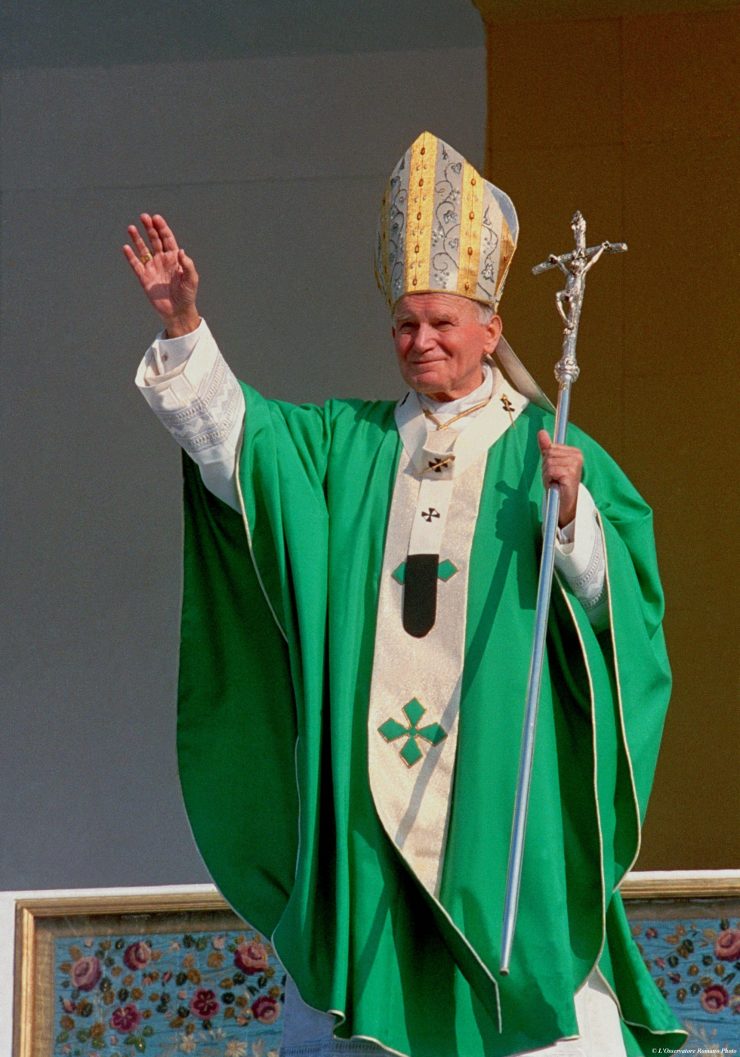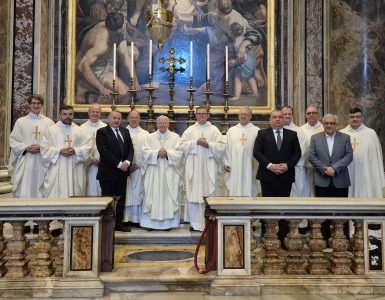At the end of the day, at evening audiences John Paul II always meet with his closest associates. On Mondays and Thursdays was secretary of state, Tuesday’s directors, on Wednesday the secretary of the second section of the Secretariat of State, called by the journalists “minister of foreign affairs”, on Fridays (from 1981 it was Cardinal Joseph Ratzinger) or secretary of the Congregation for the Doctrine of Faith, and on Saturday the prefect of Congregation for Bishops. Then dinner time came. Then, guests came. Representatives of the Roman Curia, directors of the press office and L’Osservatore Romano, friends with whom the Holy Father prepared speeches or plan of work; friends coming to Rome, like Father Tadeusz Styczeń, his successor in the ethics department of the Catholic University of Lublin, who also spent his holidays with the Holy Father. The house of John Paul II was always open. The Pope liked to be with people, he listened to them, he was interested in their affairs, he touched upon various topics. He also had friendly contacts with Italian celebrities and politicians. Among them was the president of the Republic Sandro Pertini, closely associated with the Pope. After the assassination of the Holy Father, he stayed at Gemelli’s clinic to the end of his operation, often called him, even said good-bye to him when he was going on holiday. In addition, President Carl Azeglio Campi and his wife Franka, always concerned about the health of the Holy Father. The Pope wanted to be always informed about everything. He read the press review and L’Osservatore Romano and watched television in the evenings. The television stood in the dining room, to his left. He followed the first part of the news, but also some of the programs recorded on video, documentaries, sometimes some feature film. After supper, he dealt with documents coming from the Secretariat of State, always in the same old folder. Then he was spending his time to personal reading. He read literary works, books that interested him. He went to the chapel for the last conversation with the Lord. Before going to sleep, every evening from the window of his bedroom he looked at Rome, all illuminated, and blessed it. With this sign of the cross over his “own” city, he would finish the day and go to rest.
Card. Stanisław Dziwisz – “Testimony”





